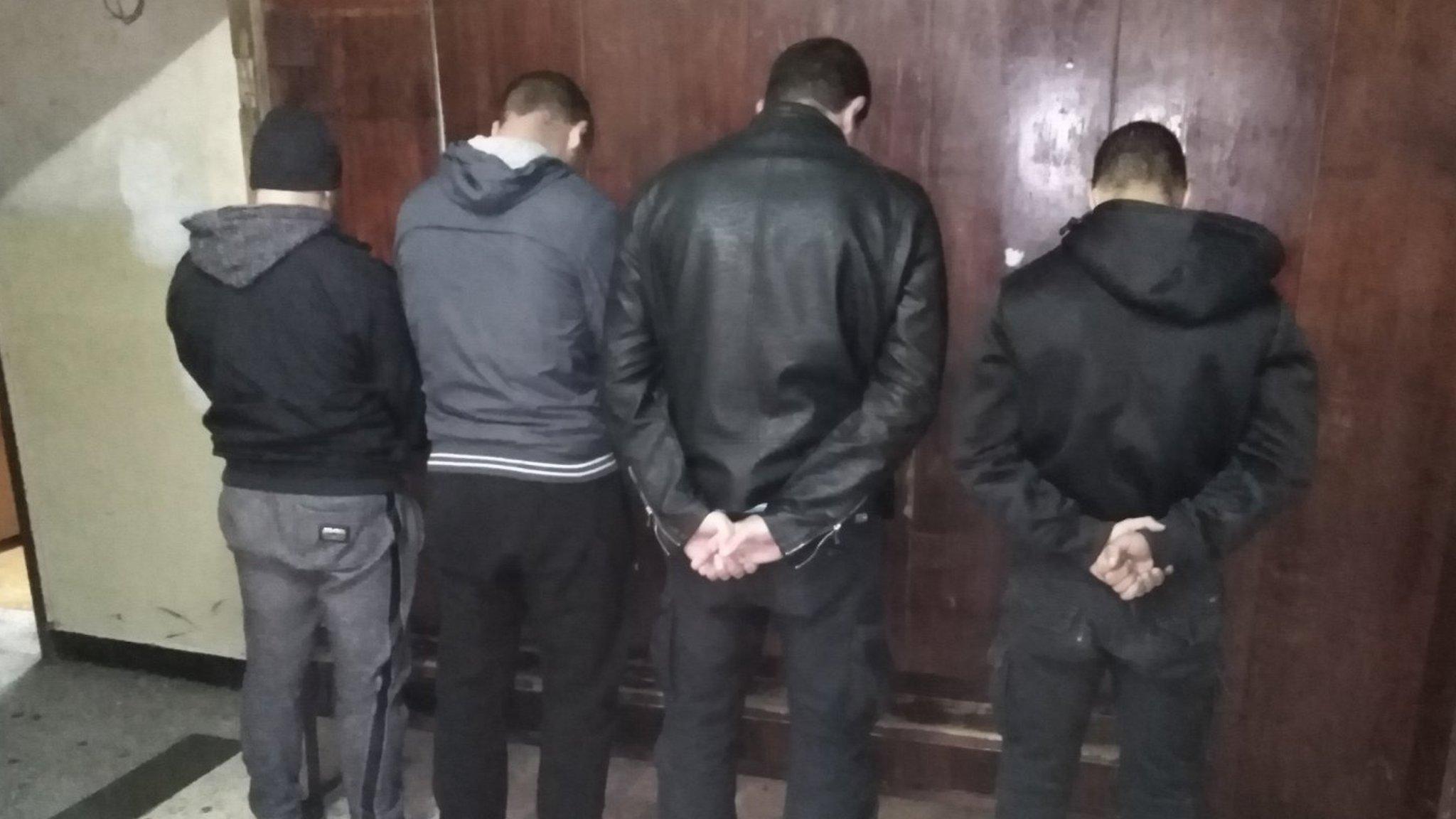Racism in sport: Josh Magennis calls for 'ticket trail'
- Published
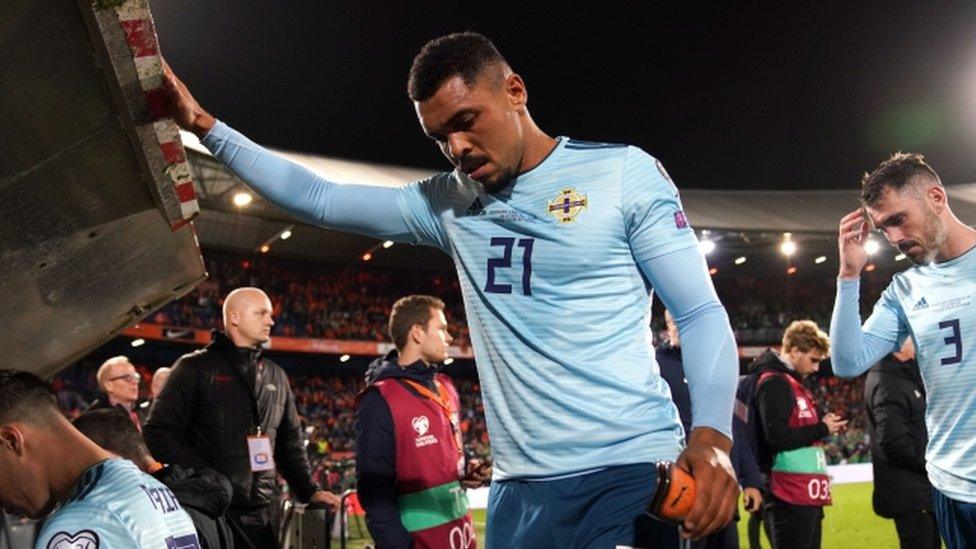
Josh Magennis has been abused for being from Northern Ireland - although not racially abused for his skin colour
England footballers faced racist abuse during their 6-0 Euro 2020 qualifier win over Bulgaria in Sofia on Monday.
The match was stopped twice following racist chanting by home supporters; four people were arrested and fined 1,000 Bulgarian lev (£443) and banned from sporting events for two years.
But how does racism affect sports stars, and is there any way to stop it?
Northern Ireland striker Josh Magennis thinks there should be a direct trail from the point of purchase to a seat.
"Millions are spent on goal-line technology and VAR, but players being abused is still going on without sometimes people being caught," the Hull City player told BBC News NI.
"The policing of people entering the stadium needs to be accounted for.
"The ticket bought should have a trail to a single person who purchased it. So at any stage, if anything kicks off, people know who is in what seat and whereabouts."
Allow X content?
This article contains content provided by X. We ask for your permission before anything is loaded, as they may be using cookies and other technologies. You may want to read X’s cookie policy, external and privacy policy, external before accepting. To view this content choose ‘accept and continue’.
The father-of-two added: "Players, referees, staff, stewards, media - all of us - have to be accounted for with passes signed off and identification certified to be fit and proper to come to the games. For me, football terraces should be the same.
"I know people have season tickets and that's how people know in some ways, and there's also CCTV - but people wear hats and scarves over their faces.
"For me, planned event purchases should happen with ID - everyone in there being accounted for."
Magennis, who grew up in Bangor, County Down, said he had "been blessed" to have never been racially abused for his skin colour while playing football.
'We all bleed red'
In 2016, while playing for Kilmarnock, a Hearts fan was banned from his team's matches for life for racially abusing Josh because he was from Northern Ireland.
He said this had happened a number of times.
"I just don't get it," the 29-year-old said.

"Whatever race you are, it's not acceptable to think it's OK to abuse someone for that. We all bleed red. It's not our fault where we are born or the colour of our skin."
Josh admits that with his young sons getting to an age of attending matches, "it's concerning that their innocence may be tampered with, seeing or hearing such things".
He believes different cultures bring different personalities and conversations to a group dynamic, which should be celebrated.
"Football is a results-based business so the best players play regardless of race," he said.
"I'm all for rivalries and emotion of the game but racial abuse it not acceptable anywhere."
Could abuse make a player stop playing?
"To get to be an elite athlete takes a lot and to walk away after sacrifices you've made would be hard, but if it was a bad enough encounter I could see why if someone did," said Josh.
"We don't know how people are behind closed doors, we don't know what makes them tick. Abuse like this could easily see players and staff feel that they should quit.
"Why would I have to put up with abuse, never mind in life, but especially my work place? I don't and neither does anyone."
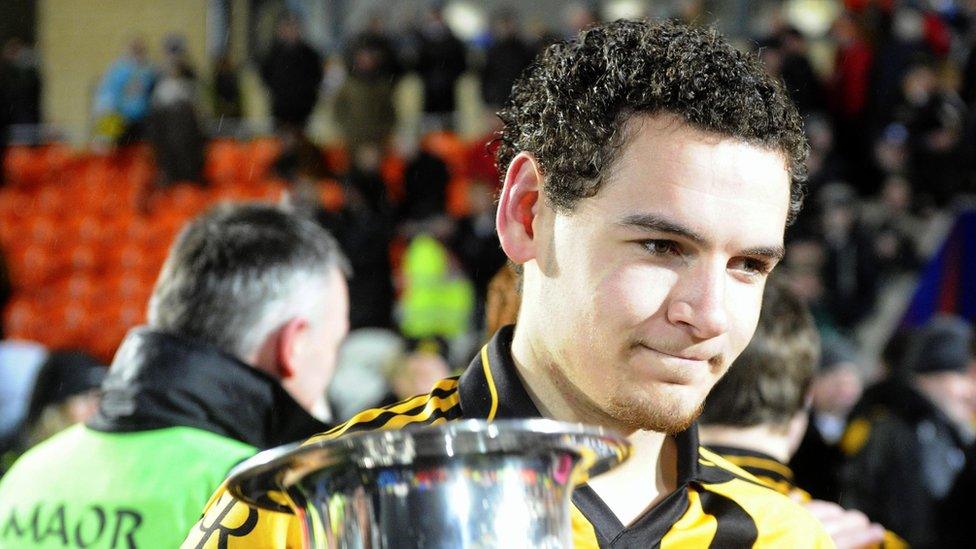
Aaron Cunningham experienced racial abuse during the Ulster Club Championship
As a child, Aaron Cunningham started playing GAA for Crossmaglen Rangers.
While he said he would have "stuck out more than others", Aaron said he only received racist abuse at youth level "a handful of times".
The 30-year-old, who lives in New York, put that down to "kids not knowing any better, saying something without knowing the full ramifications of their words".
But during the Ulster Club Championship Final against Kilcoo in 2012 he was racially abused for the first time at senior level.
A fan was later banned from GAA activities for life.
"I was more in shock that it happened rather than hurt by it, because I couldn't believe what was coming out of another grown man's mouth and hearing the torrent of racist abuse directed at me from some Kilcoo supporters," he said.
"One thing I am proud about, however, was that it highlighted the issue around the country and the GAA were forced to act."
The Official GAA Guide, external states that the association is anti-sectarian and anti-racist and any breaches of this "shall be deemed to have discredited the association".
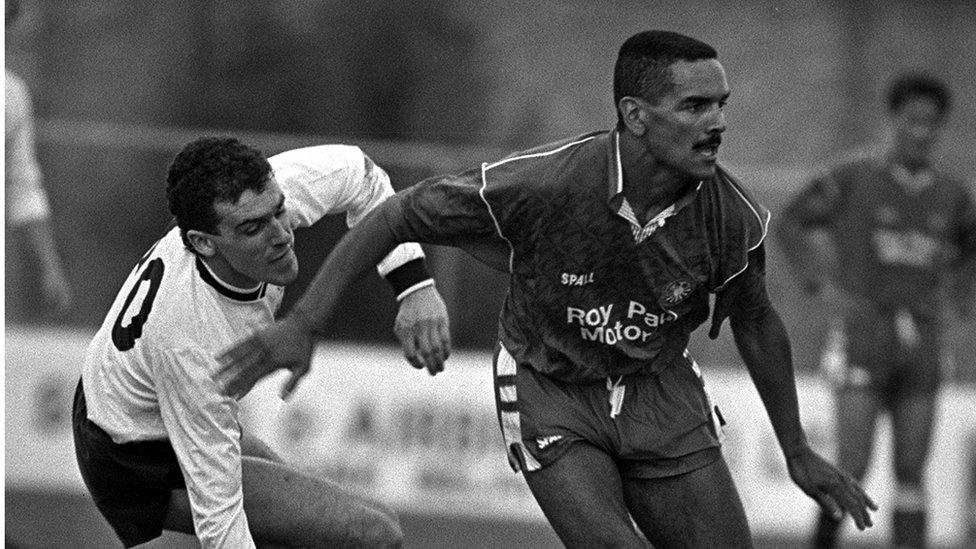
Joey Cunningham played football for Portadown, as well as GAA for Crossmaglen and Armagh in the 80s and 90s.
Cunningham's father, Joey, played GAA for Crossmaglen and Armagh as well as football for Portadown.
He said he experienced racism every week playing football in the Irish League.
"If you aren't a strong character, racism may turn you off playing the sport, why would you put yourself somewhere to be abused?
"Then again, it may drive you on to become successful. I know with my dad, having heard about his experiences, it used to drive him on to do even better."
While Cunningham thinks sport in general has evolved in terms of inclusiveness and tackling racism, "there is there is a lot more to do".
Allow X content?
This article contains content provided by X. We ask for your permission before anything is loaded, as they may be using cookies and other technologies. You may want to read X’s cookie policy, external and privacy policy, external before accepting. To view this content choose ‘accept and continue’.
"Irish people have emigrated all over the world for generations and have been well received wherever we go," he said.
"We should be mindful of that and welcome others to our games with open arms."
Last year, Simon Zebo was racially abused by a spectator while playing against Ulster Rugby at the Kingspan Stadium.
The fan was handed a lifetime ban for the abuse directed at the Ireland international.
Ulster Rugby chief executive Jonny Petrie said the club was very clear about what it expected of its supporters and players at all levels.
"As a standard bearer within the sport, it's important that we set the right example," he told BBC News NI.
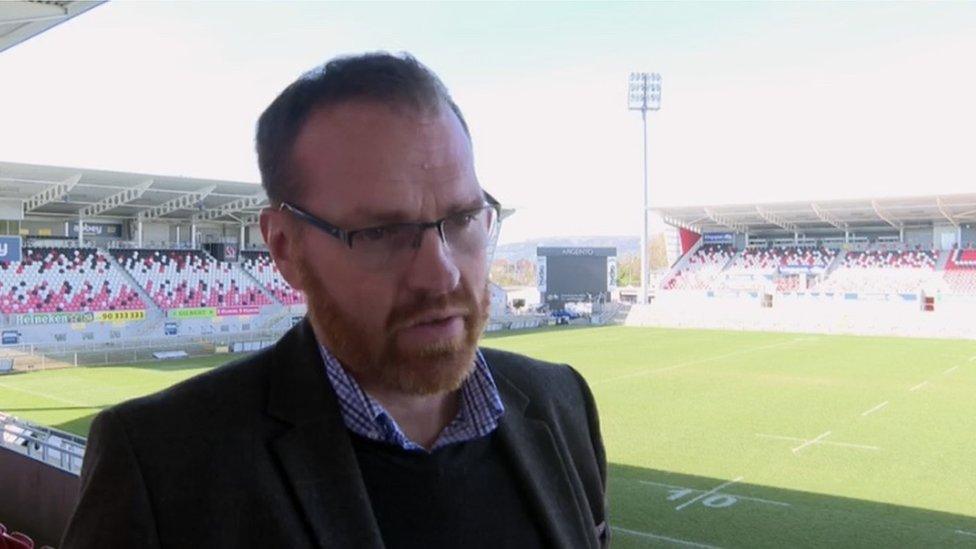
Jonny Petrie said sport should be accessible to everyone
The former Scotland international said fans had helped identify the culprit in the Zebo incident.
"It was seen among everyone involved in the club that that is not behaviour we tolerate at Kingspan," he said.
"Once we determined who the person was and what had happened, we dealt with that in the strongest possible way, and we hope that sends out a message.
"We have to be a sport that modernises and reflects the society around us by being inclusive at all levels.
"Sport is for everyone and should be accessible, no matter what your background or creed."
- Published14 August 2019
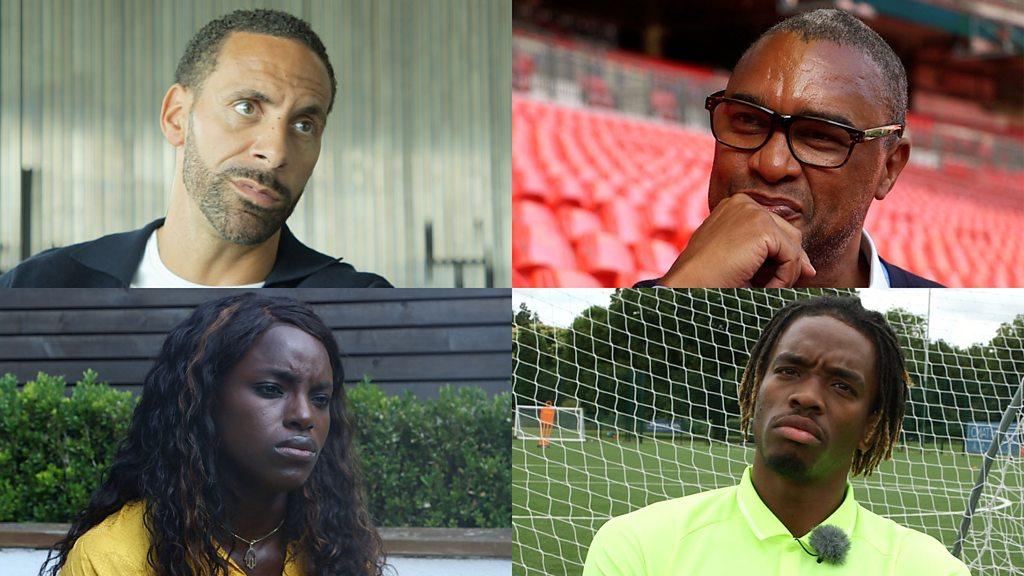
- Attribution
- Published17 October 2019
